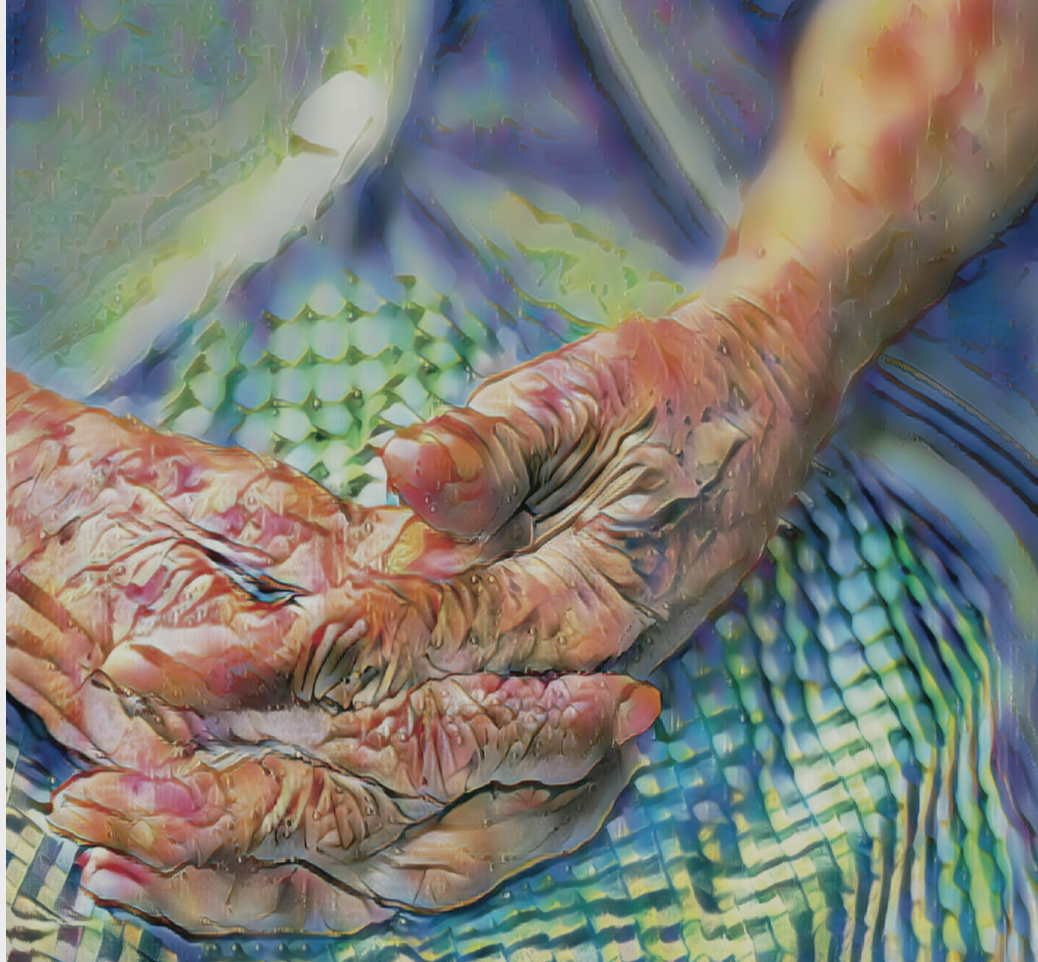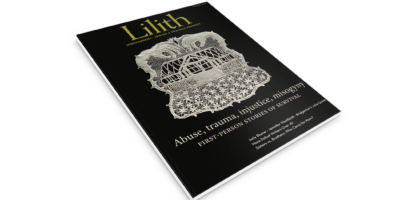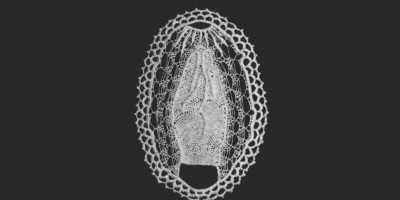
ART: LINDSAY BARNETT; PHOTO: DANIE FRANCO ON UNSPLASH
She’s My Daughter! She’s Supposed to Do This!
I set the phone on the table and walked away across the living room, putting distance between myself and my cherished older brother on the other end. I physically could not speak to him. This was the first major disagreement of our lives—although we were midway through them. Eventually my husband lifted the receiver, spoke briefly, and hung up. I worried I might never talk to my brother again. We had reached a breaking point.
It’s one that I suspect lurks somewhere within other adult brother-sister relationships, and of course not only in Jewish families, concerning whose labor has value, and who should carry the bulk of caregiving responsibilities for the generation above us.
You might have been witness to (or participated in) wrangling over how child-related caretaking is divided between the parents. Often, in hetero unions, the jobs sort along gender lines, and advice gurus, family therapists and your closest friends weigh in on the dynamics. But another source of resentments and recalibration is less discussed: the gender inequity between brothers and sisters when an elderly parent needs care.
More than one in five Americans are family caregivers, for a total of 53 million people, disproportionately female. “Family caregivers are mostly women,” says Bobbie Sackman, of the Fair Pay for Home Care campaign, NY Caring Majority. Even when women have demanding careers, the daily care for aging parents often—invisibly—falls to them. And when this happens, the consequences are far-reaching.
In my own case, the crisis was precipitated when my brother decided to be paid for being the executor of our uncle’s will, and retained eight thousand dollars to that effect. He explained, when I questioned him, that the law provided for executors to be compensated for their work. He obviously felt, right down to his bones, that his time was valuable.
I replied that mine was too, and that it was anti-feminist to assume that my labor should be unpaid and his be recompensed. For decades I’d cared for our sister who had MS, our uncle with mesothelioma, and our elderly parents (most alarmingly, when they had bedbugs) while he, living at a buffering distance in a suburb 250 miles from our parents in the Bronx, did not.
He’d missed very few if any days of work to care for these relatives, whereas in recent years I’d risked losing my Texas professorship (I lived thousands of miles from the Bronx and was trying to earn tenure) to do so. The money therefore carried a keen symbolism.
When I explained this to my brother, I could sense my words billowing around him like zephyrs, not sticking. He gave a self-conscious laugh, signifying that there was something almost charmingly comical (and not) in my response. We had reached a standoff in logic. It kept coming down to this conviction: His. Time. Was. Valuable. Our other brother agreed with him.
Yet, to his credit, the brother I’d been arguing with ultimately put our relationship first. He sent a check; I was gratefully able to start speaking with him again. And, to his further credit, my brother began a touching metamorphosis. I did, too.
IN NEW YORK STATE alone 2.5 million caregivers provide $31 billion worth of care. “I actually think that the issues play out the same way in the Jewish community and in the American community in general,” Sackman says. “It’s cross-cultural. Women are expected to do it. And they expect themselves to do it… It’s very deeply embedded.” Sackman wryly notes the adage: The best long-term care insurance is having a daughter or a daughter-in-law.
Dr. Maggie Ornstein, who teaches about family caregiving at Sarah Lawrence, notes that 40% percent of [unpaid family] caregivers are indeed men, but the work is not equally demanding. Women do “more intimate tasks, bathing, toileting, feeding, the kinds of things that historically women have done in families.” Men’s work is “not at the level of the body.” This of course impacts women’s employment: “You can’t give mom a shower while you’re in another job. But you can call an insurance company or pay a bill when you’re in another job.” In my family, one of my brothers ultimately took on financial oversight and bill-paying and the other, a doctor, oversaw medical decisions. I handled the day-to-day. “I’ve known many men over my decades of doing this work who are showering their mothers,” Ornstein adds. “But when there’s a sister available…”
Janet*, an award-winning author, tells me that her brother “never made the slightest attempt” to take control of several situations, including caring for her elderly mother and dealing with the family’s tangled finances. “My brother has a son who’s disabled. And a grandson who is also disabled…But that’s not the reason. The reason is that I exist.”
“My mother just expected me to take care of her,” says Janet. “She didn’t express gratitude.” After Hurricane Sandy isolated Janet’s mother in an inaccessible house without power for two weeks, Janet moved her into an assisted living facility, one right down the street from her. “She was furious with me because she didn’t want to give up her house…She hated getting old and she hated that she needed to be taken care of.”
Janet’s mother didn’t show the same attitude towards Janet’s husband. “She was so appreciative of everything he did for her. When he asked ‘Why don’t you appreciate what your daughter does for you?’ she said, ‘She’s my daughter. She’s supposed to do this!’”
Stacy*, a retired teacher, moved her mother to an assisted living residence ten minutes from her New York home rather than leave her in a house in Pennsylvania when the older woman could no longer look after herself. Stacy’s brother had long ago moved far across the country for work, which limited his involvement with his mother’s care.
“The facility is so gorgeous,” Stacy said. “There were terrific activities. She made friends. She actually liked it but maintained she hated it. My brother is the perfect child because he’s not the one putting her in this place; I am the evil person.” She adds, “It didn’t matter how many times I visited her. It wasn’t ever enough.”
When their mother required 24-hour care, “She was always very worried about his finances even though he has a home, boat, vacations. But my mother felt he should be protected from the costs.” This might be what some of my friends call valuing “the family prince.”
“My brother was not helpful,” said Stacy. “He wouldn’t answer her phone calls…and I have to hear about it. ‘Why doesn’t he call me?’ Look, it’s a pain in the ass to call her sometimes. But now he’s adding a layer of aggravation that I had to deal with.” Still, when the mother became progressively more difficult, “I’d call him and vent, and he listened,” which was enormously helpful, Stacy admitted.
Her brother also did some of the emotionally hard tasks, explaining to their mother that she had to sign over her power- of-attorney, and that, despite having been in the medical field, she could no longer administer her own medications. Stacy doesn’t see her brother as a villain, simply as a person with his own life…who felt, and was considered, entitled to have one.
In many interviews, I heard of brothers who lived at a distance from their mother. Daughters, even living at a distance, often moved the mother near them when the mother’s needs increased. Dr. Ornstein asked: “Why does the mother often get moved to near the daughter?
“It’s how we’re socialized…We give girls dolls and boys guns or whatever. And so we’re not teaching men to care. But everybody should be socialized to care.”
One of the many reasons caregiving needs to be shared is that being a family caregiver, especially alone, can have a dramatic influence on an individual’s health and well-being; 61 percent of family caregivers are also working, and 23 percent say that caregiving has made their own health worse. Sackman, of the Fair Pay for Home Care campaign points out that people often quit their jobs or stagnate in their work lives when they need to provide eldercare. “ You leave your job,” as many did during the pandemic to provide care. “Try getting back in. Age discrimination is a hidden but rampant crisis.”
Dr. Ornstein comments: “Men are expected to prioritize a career. Women are more expected to self-sacrifice. And somebody needs to do it. We don’t have a long-term care system in this country. Families are the long-term care system.” Even for families who can afford paid care, 25% of home care patients are unable to find professional home care due to worker shortages, understandable when average pay for such work is $12.50 an hour. With an annual salary of only $22,000, professional caregivers, predominantly women of color, drop out of the labor market when someone in their own family needs care.
Miriam*, a medical professional, conceded that her brother’s “emotional disability” was a strong reason for his not helping care for their mother. At one point Miriam’s own child was in the hospital with a form of cancer, while at the same time her mother was hospitalized in a different state. “Sometimes I went from the hospital in New York to the hospital in Pennsylvania.”
Still, when her mother became too frail to care for herself and Miriam moved her to a well-run assisted living facility nearby, her mother was resentful, but exempted Miriam’s brother from her harsh criticism.
I am aware, in writing these stories, how fortunate I was to have parents who were happy in the institutions in which they ultimately lived—a gift of temperament—and who expressed appreciation to me for my help. It is part of why caring for them, despite all, was one of the most profound experiences of my life. As Ornstein reports: “There’s certainly research that suggests that we feel better about ourselves if we’re taking care of someone and we’re doing a good job.” She adds: “It feels unfortunate to me that men miss out on that really deep connection.”
Are things changing? Yes, says Dr. Ornstein. “We know from research in the UK that the work of caring for elders is now equitably shared among youth until they start to reach adult- hood, and then there’s a bit of a discrepancy, with girls starting to do more of that at-home care.”
Back to that telephone call I had with my brother. After our dispute, he began to change, and so did I. We siblings agreed to divide the caretaking. My eldest brother never again charged for the settling of a family estate. I continued managing day-to-day care, overseeing the home health-care workers that my parents were able to afford and visiting frequently.
I started to submit bills for reimbursement for plane fare and other expenses to care for my parents. The sense of dignity that my brothers associated with their time inspired me to value mine.
My brothers and I drew closer, thanks to an increasing number of occasions to think together about how best to care for our parents. I felt privileged to see how each of them, highly trained in their disciplines, empathetic and deeply experienced, handled decision making. The times we spent together caring for our parents in hospitals and nursing homes made us more intimate. And I remain touched that my brother, even though he disagreed then, had sent a check for what seemed fair to me.
In the past four years both of my parents have died—first my father, and then, two years ago, my mother, at the age of 100, during the height of the Covid pandemic. I was able to return to New York and visit her often in hospice during the last month of her life. We had extraordinary and magical conversations, when my mother was half here, half someplace else—waiting at a bus stop for a bus to carry her back to the assisted living place she loved, or else restored to being the vigorous younger mother she’d been.
To take her mind off the situation and to soothe her, I reminded her of specific fun times our family had had. She seemed unaware that she was confined to a bed. She wanted the whole family to get together that weekend. She didn’t want to put it off. And so we planned. We’d go to
Saxon Woods. I’d told her I’d go to Liebman’s Delicatessen and get corned beef and pastrami and rye bread and pickles and Dr. Brown’s cream soda. Peaches, we’d have those. We’d wrap the sodas in newspaper to keep them cold the way we once used to. We’d bring a softball and bat in the trunk of the car. “Let’s not put it off,” said my mother. “Please. Let’s do it Sunday. Because the summer goes fast,” she said. “So very, very fast.”
Indeed. She was always shrewder than I am, with a greater sense of reality. I’m grateful that I was the one in the chair beside her bed, that I didn’t have to share her then.
I miss doing something that felt that urgent and that made me feel like a good person. For many years, if I didn’t know what to do at any particular time to feel like a good person, I could always call them. How marvelous I used to feel when leaving my father’s nursing home or my mother’s assisted care facility, waiting for the 7 bus down the hill to the A train at Isham Avenue, tired but relaxed. The city dusk was a beautiful blue. I was entitled to enjoy whatever life brought next that evening.
Yes, we need to rectify the gender disparities in family caregiving. But how can I regret the very most sacred and significant experiences of my life? Sitting with my elderly father or with my mother, a kind of holiness suffused everything. I hope that more men are lucky enough to get to experience this. With the next generation, maybe more of them will.
*indicates pseudonym
Bonnie Friedman is the author of the bestselling Writing Past Dark, named one of the essential books for writers by Poets & Writers and The Center for Fiction.






